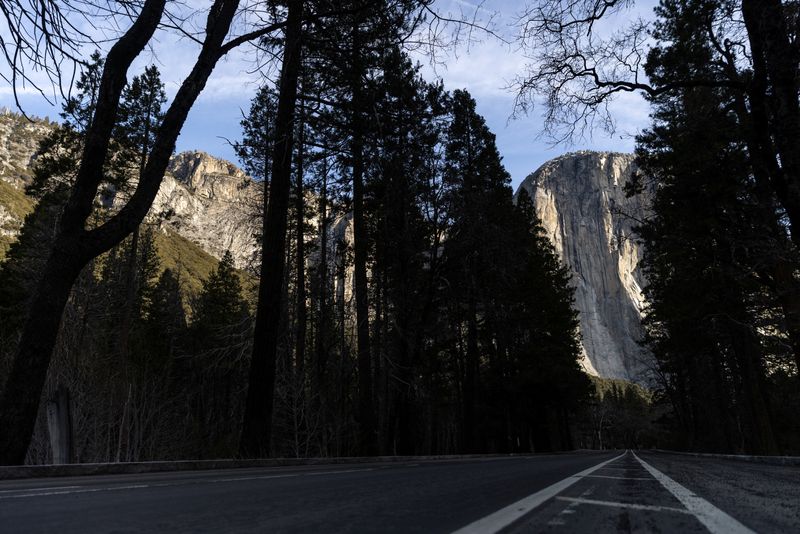By Steve Gorman and Daniel Trotta
(Reuters) - Most of the vast, scenic valley at the heart of Yosemite National Park in California will close to visitors this weekend in a rare shutdown prompted by forecasts of floods from rapid snowmelt.
The closure will start at 10 p.m. on Friday and last at least until Wednesday, May 3, possibly longer, depending on how swiftly melting mountain snow runs off into the Merced River through Yosemite Valley, the National Park Service said on Tuesday.
The agency said reservations for lodging and campgrounds would be automatically canceled and refunded.
Shutdown of an area renowned for such landmarks as the towering granite formations of El Capitan and Half Dome comes as Central California braces for a looming heat wave, with highs in the 90s Fahrenheit and overnight lows well above freezing.
The warm spell is expected to hasten a spring thaw following record winter snowfall in parts of the Sierra Nevada range. Heavy runoff down mountain slopes could send already swollen rivers spilling over their banks.
Daniel Swain, a climate scientist at the University of California, Los Angeles, said in a YouTube presentation on Monday that a "big melt" had arrived.
State Climatologist Michael Anderson said significant flooding was more likely later in May, rather than this coming week, and reservoir operators are releasing water now to make room for more later.
Anderson told reporters he expects any snow melt flooding to be less severe than the deluge that resulted from Pacific storms in March.
One area of concern is a large basin in the northern San Joaquin Valley along the Tulare River where a long-dried lake bed was refilled from storm runoff in recent weeks, submerging large tracts of farmland and ranches.
"This weather whiplash is what the climate crisis looks like," Governor Gavin Newsom said while visiting the Tulare Basin Tuesday.
About 100 miles to the north, the Merced River at the Pohono Bridge at the west end of the Yosemite Valley was forecast to top flood stage late this week, the park service said.

The vast glacial Yosemite valley received a record 40 inches of snow during the winter, prompting the closure of the entire park to the public on Feb. 25 for three weeks.
That shutdown marked one of the longest and most expansive weather-related closures in the park, according to park spokeswoman Nancy Phillipe. Established in 1890 and now encompassing more than 759,000 acres in the southeastern Sierras, the park welcomes about 4 million visitors annually, she said.